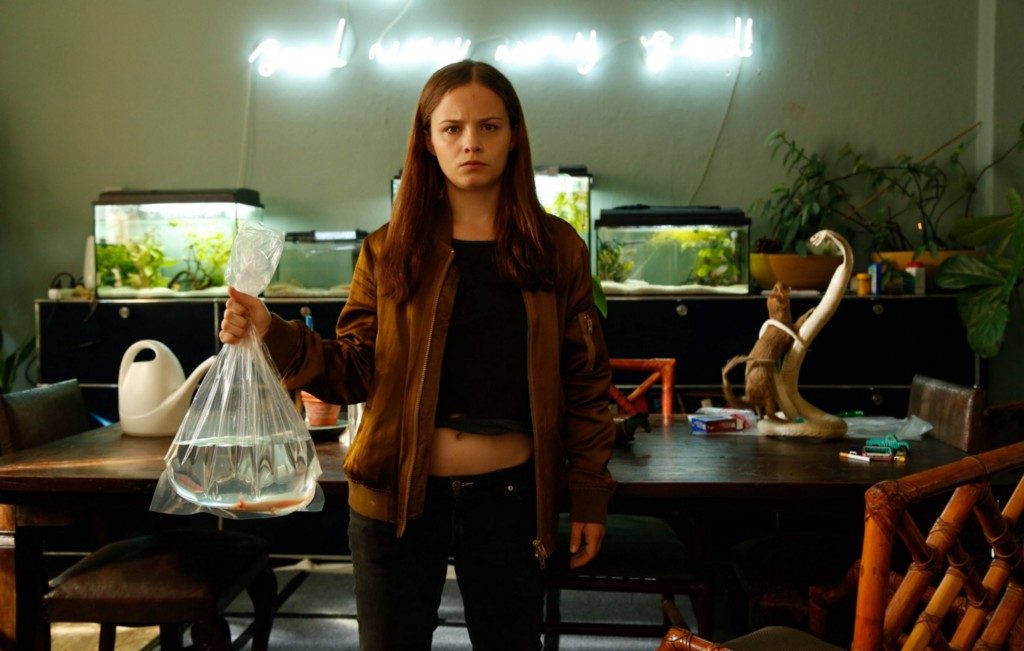Helene Hegemann is a German writer and director. She has written two novels, including the German bestseller “Axolotl Roadkill.” Hegemann has directed award-winning work in film, theater, and opera. “Axolotl Overkill” is her feature film debut.
“Axolotl Overkill” will premiere at the 2017 Sundance Film Festival on January 20.
W&H: Describe the film for us in your own words.
HH: Sixteen-year-old Mifti falls in love with a white collar criminal, who is twice her age — and tries to survive between wealthy grown-ups who behave like adolescent maniacs.
W&H: What drew you to this story?
HH: The story is based on a book that I published six years ago — it was meant to be the opposite of the typical coming-of-age novel. I didn’t want to feature a somewhat rebellious teenager who runs riot for a while but finally gets back on track.
I wanted to show a person who really tries to exist against the common standard, and I wanted to make the readers feel just as confused and stranded as a 16-year-old. The characters — no matter if they are 16, 35, or 70 — are all struggling with similar fears and problems.
The style of the novel is experimental and stream of consciousness-like, and so is the style of the film. It’s not about borders between different generations, genders, or social classes. It’s about destroying these borders, and about the border inside every person.
W&H: What do you want people to think about when they are leaving the theater?
HH: How can we empathically interact with each other when we live in a society that is based on economic competition? And how should you grow up in a world that despises old people?
W&H: What was the biggest challenge in making the film?
HH: It took us almost four years to finance the film. And it was extremely difficult to defend our unconventional way of storytelling.
W&H: How did you get your film funded? Share some insights into how you got the film made.
HH: In Germany and Europe most independent films are financed through a public film funding system. However, to get access to this funding, you have to have a broadcaster, as well as a distributor, on board.
So, it’s a catch-22 situation, as nowadays it is especially difficult to get money from broadcasters, as they are less and less interested in independent German-European cinema. But we managed!
W&H: What does it mean for you to have your film play at Sundance?
HH: I’m utterly thrilled. It’s a great honor — and it means that many people with different backgrounds will get to see the film. That’s the best thing that could have happened to it.
W&H: What’s the best and worst advice you’ve received?
HH: The best: Choose intelligent actors!
The worst: Make the film more understandable.
W&H: What advice do you have for other female directors?
HH: Don’t fall in love with your lead actor.
W&H: Name your favorite woman-directed film and why.
HH: “The Night Porter” by Liliana Cavani, because it’s about the contradictions of not only female but human desire. And “Toni Erdmann” by Maren Ade, because it’s so unbelievably intelligent and funny and precise.
W&H: If someone asked you what you thought needed to be done to get women more opportunities to direct, what would be your answer?
HH: Men need to feel just as responsible for raising their children as women do. I think that’s it.







